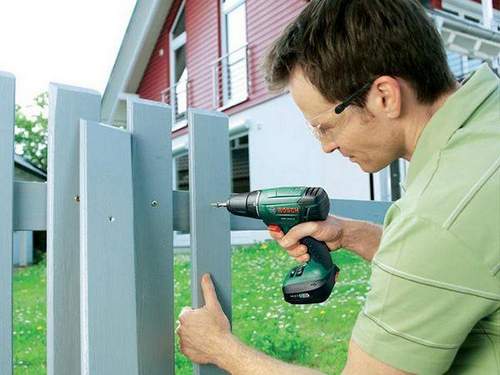How to Choose a Screwdriver
What is a screwdriver for?
A screwdriver is a necessary thing for the home. It will help speed up the repair time. You do not have to spend tremendous energy and waste time on many hours of twisting or unscrewing screws and other fasteners with a screwdriver.

Why do I need a screwdriver
Using a screwdriver, you will do this in 4 actions, which will take a matter of seconds:
- Place the fasteners in the hole;
- Bring a screwdriver to the element;
- Press the button;
- Release the button.
Using a screwdriver, you can also make holes in various materials (wood, stone, metal).
What parameters should you pay attention to when choosing a screwdriver
To make the right choice, you need to know what these or those parameters are responsible for. Here are the main notations that you can find on the battery pack:
- Nm (newtonometer);
- Rpm;
- Ni-Cd and Li-ion;
- Ah (ampere / hour);
- In (volt).
Torque
The first parameter (Nm) means the torque and is responsible for the "strength" of the device. For simple household needs associated with the usual twisting and twisting of self-tapping screws, 10-12 Nm will be enough. If roofing is expected, then it is necessary to choose the option with 20 Nm. In any case, if you take a screwdriver for the house, then 30 Nm will be enough for you. You can perform any work, even with bricks, metal and not worry that the battery will quickly discharge due to the applied force.
Video: How to Choose a Screwdriver
Rotational speed
For drilling, you need a higher number of revolutions (parameter revolutions per minute), and for ordinary household needs much less. For a household screwdriver, this value fits into the interval from 400 to 1300 rpm. For drilling, a speed of up to 1000 is required, and for working with fasteners no more than 500. This parameter is adjusted using the ring located on the machine.
Battery
The screwdriver can work both from a network and be equipped with a battery. Buying an autonomous option, you do not have to look for source of energy. This option is more mobile and is suitable for work in the "field" conditions. You will not be burdened by the presence of a cord. But the price of this option will be at least 1.5 times higher.
Just on the batteries you will see the value of Ni-Cd or Li-ion. The first option says that you have a nickel-cadmium version. It is most often installed on home versions of screwdrivers. It does not have such a long service life (up to 1000 recharges). In addition, he has a “charge memory". This suggests that it needs to be completely discharged and only then charged. Otherwise, the battery capacity will decrease. The lithium-ion (Li-ion) does not have such a problem, but the price is higher. Therefore, when choosing a screwdriver for the home, you need to wonder about the frequency of use. If you use rarely, it is better to stop at a cheaper option.
Now you know how to choose a cordless screwdriver. Now let’s talk about the benefits of a network-powered option. It:
- Low price;
- No need to splurge on batteries;
- There is no need to charge batteries every 20-30 minutes.
Although the option providing autonomous operation is more in demand, the second category also has the right to exist and be actively used.
Battery capacity
This parameter is responsible for the operating time without recharging. Capacity is expressed in ampere / hour. Accordingly, the higher this indicator, the more time is enough. For household models, 2-3 Ah are enough.